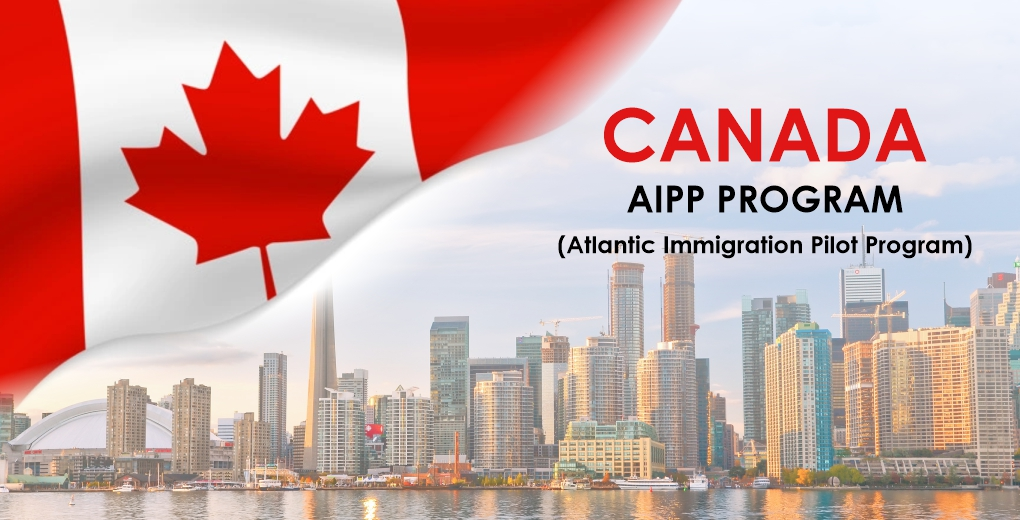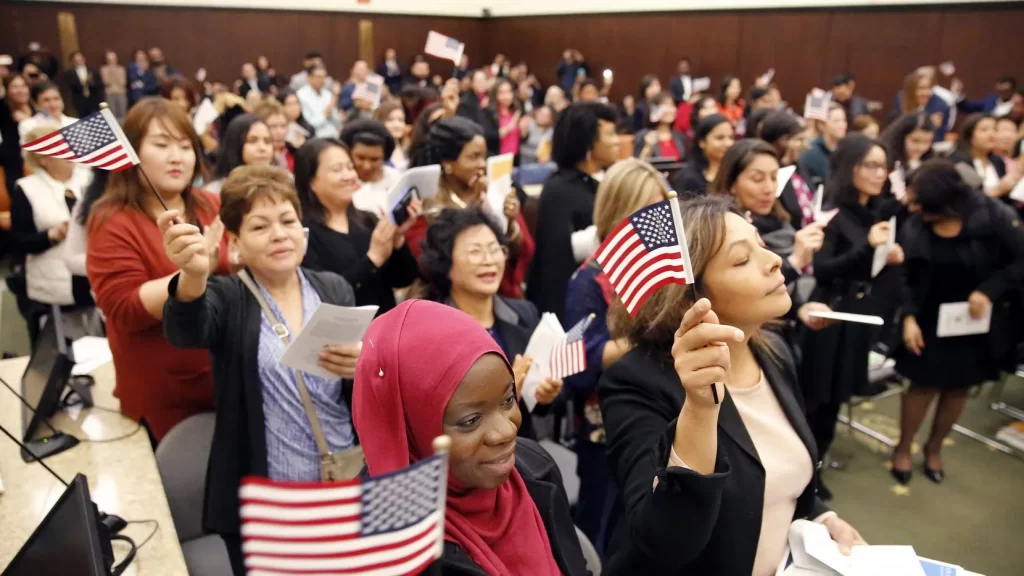Express Entry
Announced in 2015, Express Entry is an online grouping system developed by the Canadian government. This program was developed for permanent residency applications and uses the same standards, regardless of language, origin, nationality or ethnicity. The motive for Express Entry is to attract skilled workers who can help Canada’s economy and society.
Express Entry is divided into three categories:
- Federal employees
- Federal trades
- Canadian Experience
Provincial governments are also qualified to utilize Express Entry to fill local labor market shortages. The name of this express entry program is called – Provincial Nominee Programs (PNP).
How does Entry work?
The first step before completing an express entry profile is to determine if you are eligible for the program. Several of the questions involved in the preliminary qualification questionnaire are:
- What is your home country?
- What are your language skills?
- What are your background skills?
- What is your work experience?
- How many family members do you have?
- Questions regarding family members, income and net worth.
It is important to note that all responses must be accurate and truthful.
The second step is to prepare the required documentation. These documents will likely include your passport or similar travel documents, language test results, a police / public safety certification certificate, medical examination results, and proof of funds.
Express Entry uses a point-based system called the Comprehensive Ranking System (CRS) to rank in the Express Entry applicants. Your score is based on your profile’s information.
Under express entry, the Comprehensive Ranking System (CRS) positions applicants in the pool given their skills, job offer, provincial nomination, individual profile, and dialect abilities. The candidate with the highest number of points is invited to apply for permanent residency. A CRS draw by Immigration, Refugees, and Citizenship Canada (IRCC) is performed every two weeks. An express applicant has the opportunity to stay in the pool for a year, however, if an ITA is not issued within 12 months, they are expected to create a new profile and re-enter the pool.
Once an ITA is issued, you have 90 days to submit your complete residency application which is required to include all supporting documents. IRCC processes an estimated 80% of applications within six months or less.
Labour Market Impact Assessment (LMIA)
A Labor Market Impact Assessment (LMIA) is an assessment issued by Human Resources and Social Development Canada (HRSDC) department. The purpose of this assessment is to ensure that a Canadian immigrant will not take the job of a Canadian citizen. Often, if a Canadian employer wants to hire a temporary foreign worker, the Canadian government must apply for LMIA.
A standard LMIA processing traditionally takes 3-4 months. Once approved, a positive LMIA allows the foreign worker to apply for a worker’s permit (this is a legal document allowing a foreigner to work in Canada).
It is important to note that there are two ways an employer can hire a foreign worker through the Temporary Foreign Worker Program (TFWP) and the International Mobility Program (IMP).
Temporary Foreign Worker Program (TFWP)
This program is co-managed by the Human Resources & Skills Development Canada (HRSDC) and CIC department. Often, employers require HRSDC’s labor-market opinion (LMO) to employ a foreign worker. A positive LMO means that an employer has a job opening but is unable to obtain a Canadian or permanent resident for the job. It is important to note that there are several requirements that must be met before an employer is able to submit a LMIA. This includes approval of the specific amount of money being offered for the position and verification that the employer has never defaulted on a previous LMIA submittal.
Once a positive LMIA is given, the employer must submit the necessary documents to the prospective temporary employee. Once these documents are received, the temporary employee has a specific window of time to apply for an IRCC work permit.
International Mobility Program (IMP)
Not all employers need a positive LMIA from ESDC to hire a foreign worker. The International Mobility Program allows employers to hire temporary, non-LMIA foreign workers. Under the IMP, certain categories of foreign workers are exempted from an approved LMIA before being employed by a Canadian employer. These exemptions reflect broader economic, cultural or competitive advantages for Canada, and reciprocal benefits for Canadian citizens and permanent residents.
IMWU has the authority to decide whether the foreign worker falls under any of the exempt categories. Employers are expected to reach IMWU and pay $230 while submitting the job offer through the employer’s portal.
An automatic job number is produced if the IMP candidate is qualified to work in Canada. Employers must send this number to the foreign worker they hire. On that basis, the temporary worker can apply for their work permit and submit it to the ICCRC or CBSA. Officials verify all documents and issue a work permit or Letter of Introduction (if the candidate is outside Canada) upon approval.
Many different factors depend on an LMIA approval, such as the position offered, the region of the job, high or low wage, etc. A high-wage worker is a worker with wages equal to or above the provincial median hourly wage. If an employer wishes to submit an LMIA for a high-wage worker, they must submit a transition plan. This transition plan is drafted to show the Canadian government how the employer plans to reduce reliance on temporary workers and put more effort into hiring Canadians. Whereas a low-wage worker is someone with a lower-than-provincial median hourly wage. If the employer wants to hire them, a transition plan is not required.
Even with a positive LMIA, the employer is not allowed to change the parameters of the job since the LMIA was approved using those parameters. If any of the conditions change regarding the job’s parameters, the worker and or employer will have to submit an application for a new LMIA.
Family Sponsorship
If you are a family member who is living, studying and working in Canada, you are able to sponsor a family member to become a permanent resident. You must be at least 18 years old to sponsor a family member. You must also meet the following criteria:
- A citizen of Canada
- Indian registered in Canada under the Canadian Indian Act
- Canada's permanent resident
Sponsor your Spouse, Partner or Children
Current Canadian immigration law allows you to sponsor your spouse or partner under the condition that you have been living together for more than two years. Assuming this condition has been met a Canadian resident can sponsor their spouse, common-law partner, or conjugal partner or their dependent child.
Please note, the relationship described in the sponsorship must be genuine and is subject to review. If the relationship is found to be fake, the sponsorship will likely be voided.
If you are sponsoring your spouse, both of you must live together in Canada and your spouse must be qualified to receive an open work permit effectively allowing them to work in Canada.
Sponsoring a Dependent Child
There are several requirements of sponsoring a dependent child for residence in Canada. One of the main restrictions required for sponsoring a dependent is that the children must be under the age of 22. The person sponsoring the dependent child must prove their financial ability to care for the child and will also require proof that they provided financial aid for the child before they reached the 22-year old threshold. A completed application must be submitted for each dependent child.
Sponsoring Relatives
Aside from the necessary prerequisites, you are allowed to sponsor your parents or grandparents to come and live with you as a permanent resident in Canada. The primary requisite for sponsorship is proving how you are able to financial support this person(s). You must also prove that the sponsored person will not require any form of assistance from the Canadian government.
To sponsor your relative, submit an online application. The IRCC accepts, reviews, checks for duplicates and then randomly selects a specific number of applications with an invitation to apply (ITA).
You can sponsor an orphaned or close relative who is under 18 and unmarried. To sponsor this orphan or close relative you must be associated by blood or adoption. Some examples you’re your siblings, nephews, nieces or grandchildren.
Other relatives: You can sponsor a relative of any age related to you by blood or legal adoption. If you don’t have a living relative, you can sponsor a spouse, common-law partner, conjugal partner, son or daughter, parent, grandparent, sibling, uncle or aunt, nephew or niece. It is important to note that these relatives should not already be a Canadian citizen or permanent resident of Canada.

THE ATLANTIC IMMIGRATION PILOT PROGRAM
Atlantic International Graduate Program
The Atlantic International Graduate Program requires the following terms for consideration:
- Degree, diploma or equivalent credential from a publicly funded institution in the Atlantic province.
- Must have lived in one of the Atlantic provinces for more than 16 months at which time you were working towards obtaining your degree
- Applicants must take a language test showing their adequate proficiency in English or French
- Applicants must prove their ability to financial support themselves and/or family in Canada
Atlantic Intermediate-Skilled Program
- Obtain work that requires a high school degree education or job specific training for at least one year.
- Required to obtain a Canadian high school diploma or equivalent education
- Take a language proficiency test that shows your ability to communicate in French or English
- Show your ability to financially support yourself and your family
Atlantic High-Skilled Program
- Work experience in a professional or managerial business that requires at least one year of technical /skilled job experiences
- Received a Canadian high school diploma or equivalent education
- Take a language proficiency test that shows your ability to communicate in French or English
- Show your ability to financially support yourself and your family

Humanitarian Immigration
The Humanitarian and Compassionate (H&C) act is an immigration channel made by the Canadian government to allow for the immigration of people who would not typically be eligible to become permanent residents of Canada. For social, economic or personal reasons, the H&C application is for people who are in Canada and have suffered excessive hardship in their home country.
For those people who wish to stay in Canada, this immigration solution offers sanctuary. This being said this channel of immigration is not a standard immigration practice into Canada, and using this channel requires excessive documentation.
Grounds for entering Canada under H&C regulations must submit evidence that proves their need for refuge in Canada. This evidence is often rare and exceptional. Each application for H&C immigration will be evaluated in a case-by-case basis by the Canadian Immigration system.
There are several factors that Canadian Immigration Systems considered for Humanitarian Immigration entries
- Plans for living in Canada
- Family currently living in Canada
- Children who may be entering into Canada for Humanitarian causes
- Considerations for what occurs if the applicant is not granted asylum into Canada
Canadian Asylum seekers can petition for refuge from inside Canada or from outside of the country. If you are seeking immigration from outside of Canada you will need to contact the United Nations Refugee Agency (UNHCR) who will become your sponsor. There are several conditions that need to me met if you are seeking immigration into Canada on a humanitarian basis:
Convention Refugee Abroad Class
This type of refugee class applies to individuals currently living outside of their home country, but fear returning due to fear and oppression. This fear or oppression can consist of real threats of abuse or violence based on sex, race, religion, or political ideologies.
Country of Asylum Class
You may fall under this class if you are living outside if your home country and have been severely affected by civil war or armed conflict. If you fall under this class of asylum seeker, you can be privately sponsored for immigration into Canada. You can seek immigration into Canada under this class through sponsorship by the United Nations Refugee Agency (UNHCR), alternative referral organization or private sponsor.
If you are sponsored for immigration under either of the two classes, you will need to complete an immigration application package. You may not be eligible for humanitarian immigration if you have an alternative reliable option for safe haven. Such examples of alternative options are settlement in another county, citizenship in another county, or if the fundamental reasons for your humanitarian immigration no longer exist such as the ending of ongoing armed conflict.
Applying for Humanitarian Immigration Protections while inside Canada
You can apply for humanitarian immigration protections upon arrival into Canada via several ports of entry including airports, seaport or land borders. When first applying for entry, a Canadian Immigration official will listen to your refugee circumstances and decide if your application qualifies for referral to IRB. If your circumstances do qualify for referral, you will be given a date for an IRB hearing as well as 15 days to complete the required immigration paperwork.
Quebec Immigration
The Canadian territory of Quebec has several different rules and regulations pertaining to immigration compared to the rest of Canada. Quebec is a primarily French-speaking province. With over 8 million occupants, Quebec is home to more than 1/4th of Canada’s entire population. In fact, more than 4 million people live in the Montreal territory of Quebec making it the second highest populace city in Canada. There are four classifications of immigration policy:
Permanent Workers
Quebec welcomes applications for permanent workers through the specialist worker program. Under this program, candidates receive points through the use of different criteria to determine if they are eligible for immigration. Some of these criteria consider your work experience, education level, ability to speaking French or English associate with Quebec, job offers / opportunities, family ties, financial self-sufficiency and the number of children who you will be immigrating with.
Business Professionals
- Entrepreneur Program
- Investor Program
- Self-Employed Worker Program
If you already own a business but are looking to immigrate into Quebec, we recommend applying for immigration status as a self-employed worker.
Quebec Experience Class (PEQ)
- Temporary Foreign Workers
- Foreign Students
Family Reunification
Humanitarian Immigration
Similar to humanitarian immigration in mainland Canada, the government of Quebec lets a specific number of refugees migrate into Canada every year. To qualify for immigration into Quebec, each candidate must demonstrate significant need and high likelihood that returning to their home country would result in bodily harm or persecution. If the candidate is able to prove these circumstances, the Quebec immigration department will evaluate the candidate’s work experience, language skills, job opportunities and family ties.
Migrating From the United States
Every year there are a growing number of immigrants moving from the United States into Canada. This is due to Canada’s growing economy, quality of life, and inexpensive cost of living. People from the United States can move to Canada on a temporary basis or on a permanent basis. We have detailed these options below for your convenience:
Temporary Immigration
Studying in Canada
Thousands of students are increasingly turning to Canada as a great place to study. Low costs of education and living, coupled with a high employment rate, internship opportunities, quality of life, and language skills continue to attract more university-level students every year. There are several programs developed by Canada’s immigration department to assist students in immigrating to Canada:
- SWAP Working Holidays
Under the Student Work Abroad Programs (SWAP), U.S. natives between the ages of eighteen and thirty may obtain a work permit for a single year if they were enlisted in a full-time post-auxiliary educational institution within the last year.
General Temporary Worker
In order to begin working in Canada, U.S. citizens must obtain a work permit from the Canadian Government. In order to obtain this permit, you are required to have a valid job offer from a Canadian corporation. In order to offer a full-time position, this Canadian corporation will likely be required to complete a Labor Market Assessment (LMIA) report demonstrating a lack of quality labor in their specific location and previous, failed efforts in hiring Canadian citizens.
NAFTA
The North American Free Trade Agreement: allows U.S. citizens to work in Canada without the need for a LMIA report as long as they meet one of the three, following classifications:
- NAFTA Professional
This classification allows professionals to work in Canada as long as they are focuses on 1 of 60 industries including education, science and law.
- NAFTA Intra-Company Transfer
This classification allows U.S. citizens to immigrate to Canada if they are transferring.
- NAFTA Traders and Investors
If you are a United States Citizen whose owns a significant portion of a Canadian based company, you are allowed to work in Canada under this classification.
Permanent Immigration
U.S. Citizens or Temporary Residents can opt for a permanent residency in Canada under one of the three following categories:
- Express Entry
Developed in 2015, express entry is an immigration avenue developed by the Canadian government to aid in the speedy immigration of high skilled workers into Canada. This program evaluates applicants based on a number of criteria including language proficiency, financial stability, work experience, age, and job prospects.
- Provincial Nomination
Canadian provinces are allowed to independently process immigrants. Oftentimes, these provinces have their own set of criteria and immigration processes. This type of immigration is called the Provincial Nomination Program (PNP) and is intended for people who are interested in immigrating into a specific province.
- Family Sponsorship
If you have a relative that is 18 years or older, they are allowed to sponsor you for immigration into Canada.
- Business Immigration
Entrepreneurs, financial professionals, and related business professionals interested in working in Canada can immigrate to Canada if they are able to prove financial self-sufficiency and a positive impact on Canada’s economy. If you are a professional interested in immigrating to Canada under this classification, please contact a member of our team to learn about the specific requirements and applications.
Permanent Residence
A permanent resident is someone who permanently lives in Canada but was not born in Canada. Permanent residents can apply to become Canadian citizens as long as they have a proven history of financial self-sufficiency and generally benefit Canada.
To become a permanent resident, applicants must get in contact with the Canadian immigration department formally known as the immigration, refugees, and Citizenship Canada (IRCC). The IRCC can assist applicants in applying for permanent residency.
There are several benefits to becoming a Canadian permanent resident. These include health care, the Canadian Pension Plan, Employment Insurance, the Right to Live, the ability to study and work anywhere inside Canada, and protection under the Canadian Charter of Rights and Freedoms. There are some restrictions that differentiate permanent residents from Canadian citizens. These restrictions prevent permanent residents from running for political office, or the ability to work for specific employers who may engage in highly controlled industries like Cannabis or escort services.
Permanent residents can renew their status every 5 years. However, there are certain requirements that must be met in order to maintain that status. Some of these requirements include living inside Canada for 2 years within the last five years, having no criminal history, and having a proven track record of financial self-sufficiency. If you have lived outside of Canada as a permanent resident for more than 2 years, you may be able to maintain your status if you were accompanying a Canadian citizen on travel, accompanying another permanent resident on travel outside of Canada, and gainful employment outside of Canada.
Once you become a permanent resident, you will be issued a PR card. This card can be used for re-entry back into Canada. You will be expected to travel with this card and must submit the card for review when questioned by a Canadian authority.
Citizenship
Canadian citizens enjoy a significant of benefits including health care, the Canadian Pension Plan, the ability to run for public office, employment insurance, high quality of life, and much more. There are several requirements that need to be met when applying for Canadian citizenship.
- Age
In order to apply for Canadian citizenship, you need to be 18 years of age or older.
- Permanent Resident
A valid permanent residency status is a prerequisite in becoming a Canadian citizen. Furthermore, you must not have a clean criminal history or be currently investigated for any criminal offense.
- Currently Living in Canada
You must currently live in Canada as a permanent resident for a minimum of three out of the past five years in order to apply for citizenship.
- Language
You must prove your ability to speak English or French in order to apply for citizenship. Furthermore, you may be asked to take a written and oral language exam by Canadian immigration officials.
- Income Tax
In order to be qualified for citizenship you must have filed an income tax return and paid the associated taxes for the duration of your permanent residency in Canada.
- Intent to Reside
In order to be qualified for citizenship you must have filed an income tax return and paid the associated taxes for the duration of your permanent residency in Canada.
- Citizenship Test
There is a general test that applicants must take in order to be qualified for citizenship in Canada. This test is typically a grouping of questions that examine Canada’s history, values, and cultural institutions.






